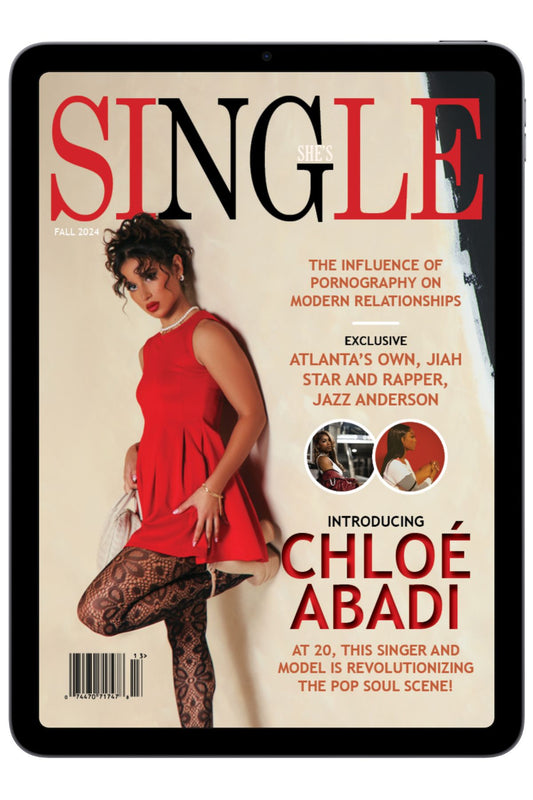Is the Faithful Black Men Association Detrimental to the African American Community?

“Instagram makes it hard for me to be in a relationship.” – A Black Man.
It’s interesting, isn’t it, that out of all the demographics of men, it is Black men who feel the need to generate a podcast, Instagram page, and website focused on being faithful to their partners. Faithful! The Black man feels so targeted and behind in society that the only thing he can cling to for his voice to be heard is conversations around loyalty and women, while simultaneously struggling to maintain either.
Black men are not often the sought-after demographic when it comes to topics on finance, fashion, or even sports in some instances. It’s becoming all too common for these men to sit around microphones bashing women or making light of their infidelity, all while trying to portray themselves as these superior individuals who contribute something of substance to the world.
Nothing we do for Black men ever seems to be enough as Black women. A Black woman can pay all the bills and love a Black man while he’s at his lowest, only for him to build himself up off her back and then go off to satisfy his sexual urges with some fantasy he saw online. Black men don’t need an organization on how to be faithful because that should be a default action when entering a committed relationship. But the stigma around Black men being the poster demographic for creating broken homes is so pervasive that a group of men felt this was the best direction to go. Why?
Black men are not holding one another accountable outside of the internet, and that’s where the real problem starts—the internet is not a real place, so we don’t need an organization telling men not to cheat or trying to save men from this stigma when the behavior is happening in real life, not online. Men need to go into churches, attend little league games, mentor young boys in their neighborhoods, and focus conversations not on finding a woman or staying faithful, but on generating wealth, building emotional awareness, understanding masculinity, and what it means to be a man in today’s world.
Black men are often stuck feeling sorry for themselves to the point that they create an Instagram page to stroke their ego in hopes of undoing the years of damage their peers have already inflicted on the women in the community. If Black men held each other accountable for the mistreatment of their partners in real time, in real life, they would change their behavior. We are all social creatures and need a community to thrive, and men are no different—they can’t thrive in isolation, and the fear of losing a friend is often greater than the fear of losing a partner.
If they confront each other, they risk being shunned and treated like a pariah in their friend group, which isn’t a favorable outcome. If a woman cheats on him and his friends no longer find him “cool,” he’s alone, and that’s not a risk he’s willing to take. So, instead, the solution is to berate women and tell them to “choose better” while upholding the deplorable behavior of their peers, ensuring that there is no better choice.

If cheating and ill-treatment towards a woman goes unchecked, a man may continue to do it to avoid losing his friends. Yet, when a woman expresses her grievances about that same man, other men will blame her for not leaving him or for choosing him in the first place. Do we see the problem? The Faithful Black Men Association is a useless and unnecessary platform, as toxic as the men who created the idea in the first place. It’s a way to hide behind something that appears good, when, in reality, no progress is being made. Men are not treating Black women any better than before its inception, so what positive impact has it had on our brothers to show real change?
There is none. What you will find, however, is that there are still men who tear down Black women at every opportunity and blame them for wanting to date a man with resources, kindness, and an understanding of courting’s true purpose. The truth is, Black men will never truly be lonely, as we can see from podcast interviews with figures like Cam Newton and Corey Holcomb. There are, in fact, women who will tolerate unfavorable behavior, regardless of a man’s financial status. Skai Jackson is the most recent example.
A Black man will never lack someone willing to tolerate poor treatment, so these organizations are simply a means to flatter themselves and repair their self-image. They are now aware that “online” means “worldwide” and that the world is indeed watching them display unacceptable, intolerable, and abusive behavior toward Black women across all platforms. Then, they gather around a mic and laugh about it.
Abolish these fake organizations and go out into the communities to have real conversations with the youth and each other, encouraging them to work hard, get an education, and pursue a good job so they can afford to take care of a family someday. Black men only need to be reminded to be faithful because many were never taught to aspire to marriage. Marriage means commitment, and once that’s the goal, loyalty comes with it—so why are we treating these as if they’re mutually exclusive?
This is not to bash the organization because perhaps it was founded with good intentions, as there are indeed Black men who do not cheat and do aspire to marriage. But you know what? We never needed an organization to tell us that. Our eyes and experiences show us this much better than any Instagram page ever could.
It’s a way for some to avoid doing the real work upfront and to position themselves to excuse mistreatment of the women in their lives, all in the name of being a “high-value man” who doesn’t cheat because he’s wearing FBM merch. No other demographic of men feels the need to parade themselves in such a way that mocks their integrity and intelligence.
Black men, stand up! Wake up! Know that you are the leaders of the Black community, and if you cannot lead, it’s because you choose not to. The Bible is a great resource, and church can be a place to start your journey to self-actualization. Once you begin by doing the inner work to improve your imperfections, you can work externally to build a brotherhood with other like-minded individuals. As you do this, knowledge will spread like wildfire. If you’re not encouraging one another to be better partners, fathers, and husbands in the field, then you’re doing the opposite—and causing more harm than good.

Signed,
A Tired Black Woman
by Danielle Wright









